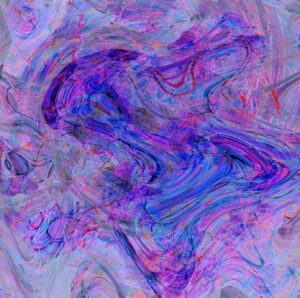
From the 46th Chapter:
But our passing life which we have here does not know in our senses what our self is, but we know in our faith. And when we know and see, truly and clearly, what our self is, then we shall truly and clearly see and know our Lord God in the fulness of joy. And therefore it must necessarily be that the nearer that we are to our bliss, the more we shall long, both by nature and by grace. We may have knowledge of ourselves in this life by continuing help and power of our exalted nature, in which knowledge we may increase and grow by the furthering and help of mercy and grace. But we may never fully know ourselves until the last moment, at which moment this passing life and every kind of woe and pain will have an end. And therefore this belongs to our properties, both by nature and by grace to long and desire with all our powers to know ourselves, in which full knowledge we shall truly and clearly know our God in the fulness of endless joy.
Julian of Norwich. Showings. New Jersey: Paulist Press, 1978. 258. Print.
— & From the 54 Chapter (Added Nov. 30, 2021):
Greatly ought we to rejoice that God dwells in our soul; and more greatly ought we to rejoice that our soul dwells in God. Our soul is created to be God’s dwelling place, and the dwelling of our soul is God, who is uncreated. It is a great understanding to see and know inwardly that God, who is our Creator, dwells in our soul, and it is a far greater understanding to see and know inwardly that out soul, which is created, dwells in God in substance, of which substance, through God, we are what we are.
And I saw no difference between God and our substance, but, as it were, all God; and still in my understanding accepted that our substance is in God, that is to say that God is God, and our substance is a creature in God. For the almighty truth of the Trinity is our Father, for he made us and keeps us in him. And the deep wisdom of the Trinity is our Mother, in whom we are enclosed. And the high goodness of the Trinity is our Lord, and in him we are enclosed and he in us. We are enclosed in the Father, and we are enclosed in the Son, and we are enclosed in the Holy Spirit. And the Father is enclosed in us, the Son is enclosed in us, and the Holy Spirit is enclosed in us, almighty, all wisdom and all goodness, one God, one Lord. And our faith is a power which comes from our natural substance into our sensual soul by the Holy Spirit, in which power all our powers come to us, for without that no man can receive power, for it is nothing else than right understanding with true belief and certain trust in our being, that we are in God and he in us, which we do not see.
Julian of Norwich. Showings. New Jersey: Paulist Press, 1978. 285-6. Print.


